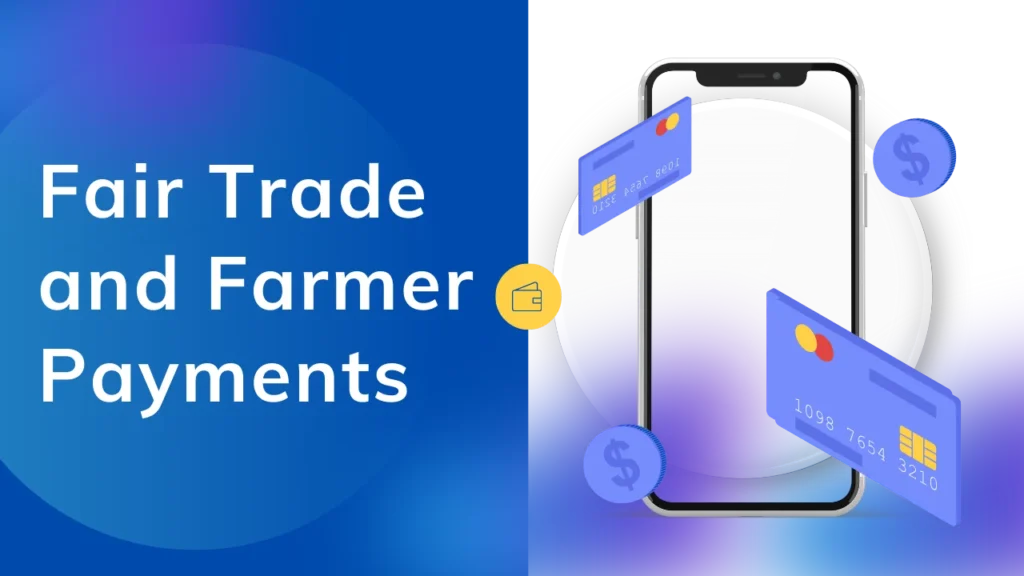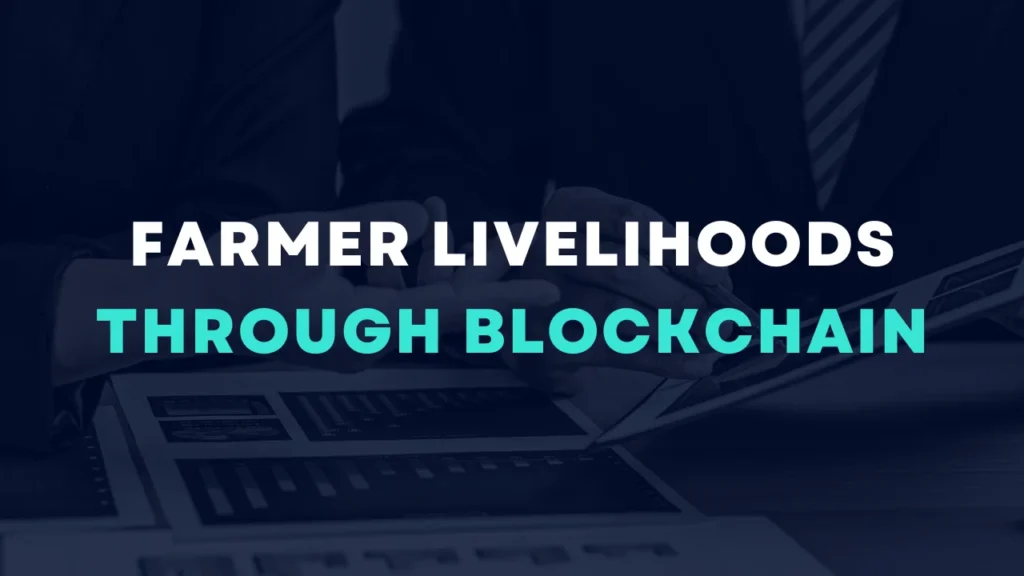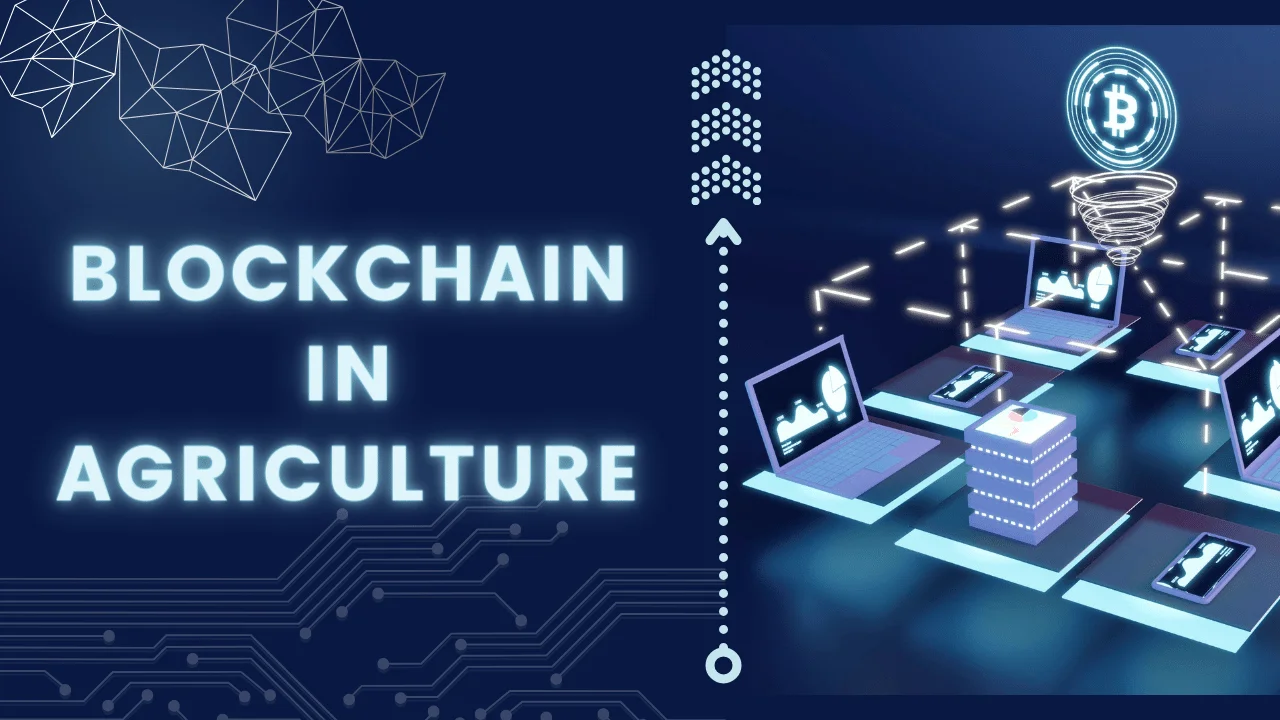With blockchain technology shining as an example of innovation, the agricultural sector is on the cusp of a technological revolution that could radically alter the face of farming and the food supply chain, particularly in the realm of Blockchain in Agriculture. This digital ledger technology has wide-ranging implications for improving transparency, efficiency, and sustainability in different areas of agriculture. It is most known for supporting cryptocurrencies. Blockchain applications have the potential to revolutionize the agricultural industry by guaranteeing the accuracy of production records, keeping tabs on each stage of production, and following products all the way from the farm to the consumer.
What Blockchain Means for Agriculture?
Problems with food safety, quality control, and environmental sustainability are at the heart of blockchain technology’s application to the agricultural sector. To guarantee that food products are sourced from safe and sustainable environments, it is essential to establish transparent and traceable supply chains. A more stable, sustainable, and egalitarian food system is within reach, thanks to this innovative technology, which promises to revolutionize our perspectives on food production, distribution, and consumption.
Transparency and Traceability
Tracking Food From Farm to Fork
Thanks to blockchain technology, which can record every step of the supply chain in an immutable ledger, food products can be tracked in a way that has never been possible before. Trust in agricultural practices and products can be fostered when consumers are able to verify the origin, handling, and quality of the food they consume.
Ensuring Food Safety
Blockchain technology drastically lowers the possibility of food fraud and contamination by keeping a safe and unchangeable record of all processing, manufacturing, and delivery steps. Protecting consumer health and boosting confidence in food quality, it allows quicker identification and response to food safety issues.
Streamlining Supply Chain Efficiency
The use of blockchain technology has the potential to greatly simplify and decentralize agricultural supply chains. Blockchain streamlines logistics by allowing real-time tracking and automating transactions through smart contracts, which reduces costs and inefficiencies.
Promoting Sustainable Practices
By providing incentives for using environmentally friendly practices, blockchain technology promotes sustainable agriculture. It promotes more eco-friendly choices among producers and consumers by providing an open platform for confirming sustainable practices.
Fair Trade and Farmer Payments

Direct Tipping and Microloans
With the help of blockchain technology, customers can now tip farmers directly, which means that more money will go to the people who plant and tend our food. Microloans with lower interest rates become available, which is a huge help to small and medium-sized farms.
Fair Farmer Payments
Fair compensation for farmers’ produce is guaranteed by blockchain technology, which makes the supply chain more transparent. As a result, farmers are paid more fairly and faster, and there are fewer payment discrepancies.
Addressing Systemic Challenges
Resolving Obstacles Caused by Institutions and Technology
Integrating blockchain technology with current systems is just one of the technological hurdles that must be overcome; establishing trust among stakeholders is another major institutional obstacle. It is essential to work together and focus on educating farmers.
Investing in Digital Infrastructure
Massive funding for internet infrastructure is essential if underdeveloped and rural regions are to experience blockchain’s full potential. In order to facilitate blockchain adoption, it is crucial to improve internet access and technology penetration in these regions.
Developing Common Data Standards
One big problem with blockchain technology is that there aren’t any universally accepted data formats or protocols for use in farming. More seamless integration of blockchain technologies across platforms and regions can be achieved through the development and adoption of common standards.
Farmer Livelihoods through Blockchain

In addition to enhancing transparency and efficiency, blockchain technology has the potential to greatly benefit farmers’ livelihoods when applied to the agricultural sector. Blockchain technology has the ability to improve farming communities all over the globe by making markets more accessible, making payments easier, and providing trustworthy information about farming methods.
Democratizing Market Access
Expanding Reach to Global Markets
Through the use of blockchain technology, farmers can bypass the usual obstacles to market entry and connect directly with buyers all over the world. Because of this one-on-one relationship, farmers are able to get higher prices for their goods and take advantage of more sales opportunities.
Reducing Dependency on Intermediaries
With blockchain technology, intermediaries can be reduced, allowing a larger share of the profit to reach the farmers directly. Stronger local economies and more environmentally friendly farming practices can result from cutting out middlemen.
Product Value through Transparency
Farmers can now demonstrate the authenticity and high quality of their products using blockchain’s precise tracking capabilities, which could lead to increased prices. Products grown in a sustainable manner or with organic ingredients may benefit greatly from this level of openness.
Optimizing Payment Processes
Ensuring Timely and Fair Payments
Automated payment release to farmers upon delivery of produce is possible with smart contracts, guaranteeing fair and timely payment. For small-scale farmers, this timely financial support is vital for their cash flow.
Facilitating Cross-Border Transactions
By cutting down on transaction fees and doing away with currency exchange altogether, blockchain technology streamlines international financial transactions. Because of this, farmers can more easily and profitably sell their products on a global scale.
Leveraging Verifiable Data for Better Farming Practices
Improving Access to Credit and Insurance
The immutable records provided by blockchain technology offer a trustworthy record of a farmer’s output, which can be leveraged to obtain more favorable insurance or loan terms. In turn, better access to financial services can make agriculture more sustainable and productive.
Supporting Certification of Sustainable Practices
Blockchain technology can help farmers demonstrate their commitment to organic and sustainable farming practices, which can speed up certification procedures. Not only does this encourage eco-friendly farming methods, but it also opens up new market opportunities.
Blockchain and the Future of Agricultural Data Management
With the increasing reliance on data in agriculture, blockchain technology is emerging as a crucial tool for the secure and reliable management of agricultural records. From protecting sensitive information to improving decision-making with real-time data, its uses are practically endless.
Securing Farm Data
Protecting Data Integrity
Due to its distributed ledger technology, blockchain records are transparent and unchangeable, making them very secure against fraud and tampering. The accuracy of agricultural records and production histories depends on this integrity.
Ensuring Privacy and Control
By deciding who can see their data, farmers can make it more secure and private. This is of the utmost importance when handling confidential information regarding financial transactions, farming methods, and crop yields.
Facilitating Data Sharing
Researchers, agronomists, and farmers can work together more easily with blockchain technology because it provides a safe platform for data sharing. Improvements in agricultural methods and the hardiness of crops can result from this pooled knowledge.
Enabling Precision Agriculture
By connecting to sensors and other Internet of Things (IoT) devices, blockchain technology can offer a trustworthy method of managing and analyzing data in real-time. This paves the way for precision agriculture, which in turn empowers farmers to maximize yields and optimize resources through data-driven decision-making.
FAQs
How does blockchain improve food traceability?
Blockchain creates an immutable record of every transaction, making it easy to trace food products from farm to consumer.
Can small-scale farmers benefit from blockchain?
Yes, blockchain technology offers small-scale farmers direct access to markets, fairer prices, and timely payments.
What role does blockchain play in sustainable agriculture?
It provides a transparent and verifiable way to certify sustainable practices, encouraging eco-friendly farming.
Are there any challenges in adopting blockchain in agriculture?
Challenges include the need for digital infrastructure, standardization of data, and overcoming institutional resistance.
How does blockchain facilitate farmer payments?
Through smart contracts, payments can be automatically triggered upon fulfilling certain conditions, ensuring prompt and fair compensation for farmers.
Also Read: Indian Government Blockchain Initiatives
Final Words
The potential for blockchain technology to transform the agricultural industry is evident, even though its adoption is still in its early stages. With initiatives like the FAO’s and the involvement of various tech companies, the integration of Blockchain in Agriculture promises a more robust, sustainable, and egalitarian agricultural sector. A more innovative and sustainable future for agriculture is possible thanks to the ongoing pilot projects and collaborative efforts among stakeholders that are preparing the way to fully utilize blockchain technology in agricultural practices.

Timothy Jensen is an expert writer who specializes in the world of cryptocurrencies, including blockchain technology and Bitcoin. He has a passion for explaining complex topics in an easy-to-understand way. Timothy’s work aims to demystify the digital currency landscape for his readers.

